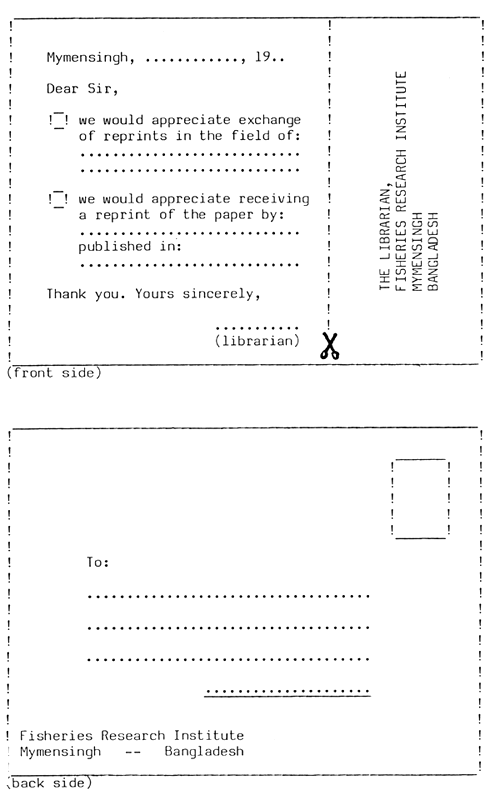(13) International circulation of scientific results and data is more and more based on exchange of “reprints”: printed or photocopied copies of articles in international journals, edited books, proceedings of conferences, etc. These reprints are mostly free of cost and are sent by institute or university libraries on the basis of mutual exchange. The FRI central library in Mymensingh should put emphasis on collection of reprints for the researchers in the stations; the reprints should, however, remain the property of FRI and should be catalogued and stored adequately.
(14) For the request of (exchange of) reprints cards are used. A typical specimen is presented on page 47. FRI should have these cards printed, and allow for adequate funds for international postage in its yearly budget. For an institute of the size of FRI, yearly sending of 3000 – 4000 cards can be considered normal.
(15) Sending of reprint request cards is done in two ways:
Especially this last way is an efficient manner of quickly collecting the “state of the art” in a certain research area.
(16) For finding the papers to be requested, so-called “reference journals” are issued, presenting monthly lists of the contents of international periodicals, mostly with contact adresses. In the list of core periodicals for FRI (pages 44 and 45) two such reference journals have been included:
Both periodicals are issued monthly by FAO, Rome, and can be acquired free of charge.

